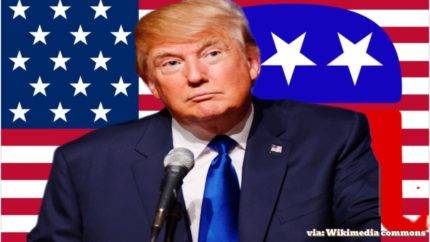In a unanimous decision, the United States Supreme Court has overturned Colorado’s attempt to remove Donald Trump from the state’s Republican primary ballot, citing the 14th Amendment of the Constitution. This decision marks a significant victory for the former president, who has been embroiled in controversy following the January 6, 2021, Capitol riot. The court’s ruling effectively quashes efforts in multiple states, including Colorado, Illinois, and Maine, to exclude Trump from primary ballots due to his alleged role in inciting the insurrection.
Trump’s critics have long accused him of instigating and supporting the assault on the US Capitol, viewing it as an attempt to overturn the results of the 2020 presidential election. However, the Supreme Court’s decision reaffirms Trump’s eligibility to participate in the electoral process, bolstering his position as the frontrunner for the Republican presidential nomination.
In response to the ruling, Trump took to his Truth social media platform to celebrate what he described as a “BIG WIN FOR AMERICA!!!” The decision comes just ahead of Super Tuesday, the day when a significant number of states hold their presidential primaries and caucuses, further solidifying Trump’s standing within the Republican Party.
Reactions and Implications
The Supreme Court’s decision has elicited mixed reactions from across the political spectrum. While Trump’s supporters view it as a vindication of his right to participate in the democratic process, critics argue that it sets a dangerous precedent by allowing a figure accused of inciting violence to remain on the ballot. The ruling also raises questions about the interpretation of the 14th Amendment and its application to individuals involved in acts of insurrection.
Moreover, Trump’s continued presence on primary ballots is likely to intensify the partisan divide in American politics. With the former president poised to secure the Republican nomination, the stage is set for a contentious electoral battle against Democratic President Joe Biden. As the nation grapples with deep-seated political polarization, the Supreme Court’s decision underscores the enduring impact of Trump’s presidency on the country’s democratic institutions.
Looking Ahead to November
As the 2024 presidential election draws nearer, all eyes are on the potential rematch between Trump and Biden. With both candidates representing starkly different visions for the future of America, the outcome of the election is poised to shape the nation’s trajectory for years to come. While Trump remains a polarizing figure, his resilience in the face of legal challenges and political scrutiny underscores his enduring influence within the Republican Party.
As voters prepare to cast their ballots in November, the Supreme Court’s ruling serves as a reminder of the complex interplay between law, politics, and democracy in the United States. With the stage set for a high-stakes electoral showdown, the nation stands at a critical juncture, grappling with the legacy of the Trump presidency and its implications for the future of American governance.
Supreme Court Rules on 14th Amendment’s Application in Presidential Eligibility
In a significant ruling, the United States Supreme Court clarified the application of the 14th Amendment concerning individuals’ eligibility for federal office, including the presidency. The 14th Amendment prohibits individuals who have engaged in insurrection or rebellion against the United States from holding such positions. However, the Supreme Court, with its current 6-3 conservative majority, declared on Monday that only Congress possesses the authority to enforce this provision against federal office holders and candidates.
According to the court’s unsigned opinion, states may disqualify individuals from holding or seeking state office based on the 14th Amendment. Still, they lack the constitutional power to enforce Section 3 with regard to federal offices, particularly the presidency. This ruling carries significant implications, particularly in light of recent efforts to challenge former President Donald Trump’s eligibility for office under this amendment.
Challenges to Trump’s Eligibility and Supreme Court’s Decision
The Supreme Court’s ruling stemmed from a case in Colorado, where Trump’s eligibility for office was contested by a group of six voters, including Republicans and independents. These voters, backed by the liberal watchdog group Citizens for Responsibility and Ethics in Washington (CREW), argued that Trump’s actions preceding the Capitol riot of 2021 rendered him unfit for office under the 14th Amendment. They sought to hold him accountable for his alleged role in inciting the riot, which aimed to disrupt the certification of President Biden’s election victory.
While the Colorado plaintiffs expressed disappointment with the Supreme Court’s decision, stating that it failed to address the gravity of Trump’s actions on January 6th, they maintained that the ruling did not exonerate him. Noah Bookbinder, the President of CREW, emphasized that various judicial bodies have recognized the events of January 6th as an insurrection incited by Trump. Despite this setback, Trump continues to face legal challenges on multiple fronts, including two criminal cases related to his efforts to overturn the results of the 2020 election.
Trump’s Legal Battles and Political Fallout
Trump’s legal troubles extend beyond the realm of constitutional interpretation, with ongoing criminal contested by a group of six voters, including Republicans and independents. These cases center on allegations of wrongdoing related to his attempts to overturn the election results. Trump has vehemently denied any wrongdoing, dismissing the investigations as politically motivated attempts to undermine his re-election prospects.
The Supreme Court’s decision regarding the 14th Amendment’s application underscores the complexities surrounding Trump’s political future and the legal battles he faces. While the ruling may have immediate implications for his eligibility for federal office, it does not absolve him of the broader legal challenges and political fallout resulting from his actions surrounding the 2020 election and the Capitol riot. As Trump navigates these legal hurdles, the ramifications of the Supreme Court’s decision are likely to reverberate through the political landscape, shaping debates over accountability, constitutional interpretation, and the boundaries of executive authority.
Table of Contents
Discover more from OGM News NG
Subscribe to get the latest posts sent to your email.














